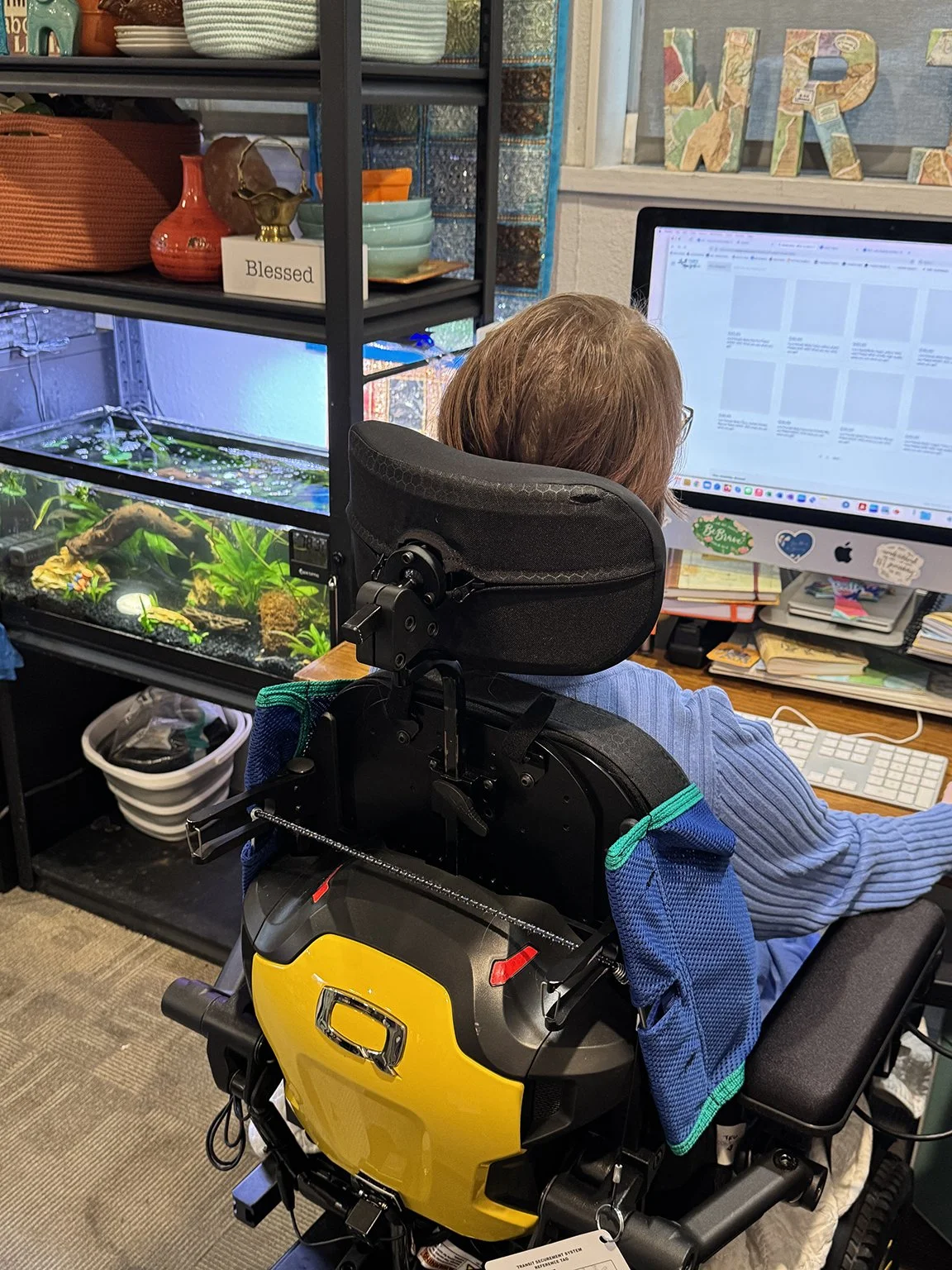How a Betta Fish Taught Me About Faith, Science, and Overcoming Challenges
Sometimes the most ordinary experiences become powerful lessons in faith, science, and overcoming challenges. For me, that moment came through a Betta fish.
As someone who lives with Muscular Dystrophy and uses a motorized wheelchair, I’ve faced physical challenges that require creative problem-solving every day. So when I decided to get a pet, I needed one that fit both my needs and my desire to care for one of God’s creatures.
A cat or dog didn’t feel like the right fit—not because I didn’t love them, but because I worried about unintentionally hurting them or being unable to meet their needs. That’s when I chose a Betta fish.
Growing up my mom had kept a Betta in a vase. So it seemed so easy…
A Small Start and a Hard Lesson
I began with a small 2-gallon aquarium. It seemed manageable. But despite my best efforts, maintaining stable water conditions in such a limited volume proved harder than expected. After just six weeks, my fish died.
It was heartbreaking. But I didn’t give up.
Some people might have said, “This is not going to work for me.” But I was determined. I wanted to learn and grow—and that meant facing the challenge, not avoiding it. So I started researching. That’s when I discovered something that changed everything: a larger tank—like a 20-gallon setup—provides far more stability because it buffers environmental changes more effectively.
Despite what others thought, I chose to try again—this time with a much larger aquarium. It was my first step toward overcoming challenges through determination and discovery in my freshwater aquarium adventure.
Thinking Creatively: Science Meets Strategy
To care for my tank independently, I had to think like a scientist and an engineer.
I set up:
A smart plug strip to automate the lighting and filtration schedule
A fountain pump controlled by an extension cord plugged into the smart plug strip for easier water changes
A hang-on-the-back filter adjusted to the side so I could reach it and attached to the smart plug strip so I could easily turn it on and off.
With these tools in place, I could do something most people assumed I couldn’t. And it wasn’t just about keeping a fish alive—it was about embracing the idea that God equips us to do hard things, even when the odds seem stacked against us.
The Science of the Aquarium: The Nitrogen Cycle
The Science of the Aquarium: The Nitrogen Cycle
As I learned more, I realized how much science is involved in maintaining an aquarium. It’s not just about feeding a fish and watching it swim—it’s about understanding how ecosystems work.
Every living aquarium depends on a natural process called the nitrogen cycle:
Fish waste releases ammonia, which is highly toxic.
Beneficial bacteria convert ammonia into nitrites (still dangerous).
Another set of bacteria convert nitrites into nitrates, which are less harmful and can be absorbed by plants or diluted with water changes.
It’s a delicate balance. Too much of anything can tip the scales and make the environment unsafe. I quickly realized that managing a small glass tank is like trying to manage a miniature universe—and it's incredibly hard to get right.
But in that complexity, I saw something beautiful.
Awe and Wonder: God’s Design in Every Drop
Trying to build and maintain an aquatic world has shown me how difficult it is to sustain life. Every small shift matters. Every system must work together in harmony.
And yet, our Creator spoke the entire world into being—oceans, rivers, creatures, weather patterns, nutrient cycles—perfectly in balance from the very beginning.
That realization filled me with awe.
This little fish tank reminds me daily that science doesn’t pull us away from God—it points us back to Him. Every challenge I face while caring for my aquarium is a new opportunity to see how detailed, intentional, and brilliant God’s creation truly is.
Faith That Grows Through Curiosity and Challenge
This experience hasn’t just strengthened my skills—it’s strengthened my spirit. It’s taught me the value of:
Patience and persistence
Trusting God's purpose even when things go wrong
Seeing problems as invitations to explore and grow
And it’s reminded me why I care so deeply about helping kids connect faith and science. Because I want them to know:
It’s okay to ask big questions
It’s okay to make mistakes and try again
God isn’t afraid of science—and we don’t have to be either
Helping Kids Face Challenges with Confidence
This story may have started with a fish, but it’s really about something bigger: helping kids grow confident in their faith while learning to understand the world around them.
We live in a time where children are often told they have to choose between belief and evidence, between church and curiosity. But they don’t.
We can help them see that faith and science work together, and that overcoming challenges—whether physical, emotional, or intellectual—is something God walks with us through.
Let’s teach our children that they, too, can overcome obstacles. They can be scientists. They can be caregivers. They can be curious and faithful and brave—all at once.
Because with God, all things are possible. Even building a thriving ecosystem in a wheelchair-accessible aquarium.
And if a little Betta fish can open the door to wonder, imagine what else God can use to help us teach kids that overcoming challenges is part of how we grow closer to Him.
Interested in a Betta Fish and Aquarium?
My favorite place to go for Betta Fish is Coast Gem USA. (No I am not an affiliate.) I have found that their Betta Fish are kept in larger aquariums which leads to a more healthy fish. I adore the female Betta Fish. They are less aggressive and more sociable. Check them out here!
Aquarium Co-op is THE place to go for all thing aquariums. They have a great article on How to Set up a Betta Tank.
Before every purchasing a fish this article on the Nitrogen Cycle and how to setup your tank is a must!


